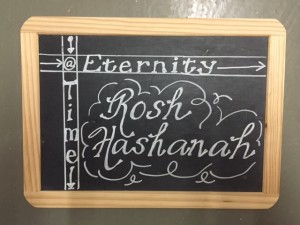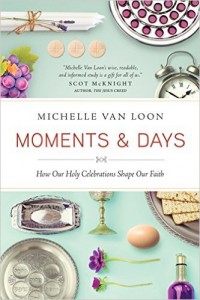While every day is an intersection between time and eternity, sacred days and seasons are engraved invitations to each of us to connect without distraction to God’s Big Story. Holy days call us to move intentionally out of our right here, right now lives into a space in time that allows us to more fully savor his holy love for us. Our own “25/8” overscheduled days are not the measure of our value to him. Sacred days and seasons call us into the intersection. There we can remember heart, soul, mind, and strength, as whole people, that we were made to live his Story all the days of our lives.
The Jewish feast cycle and the Christian calendar each offer an on-ramp into the intersection of time and eternity. If you attend a non-denominational congregation, your church may focus primarily on Christmas and Easter along with non-holiday holidays like Mother’s Day, Father’s Day and Church Picnic Day. If you attend a liturgical congregation, you’re likely familiar with the rhythms of the Church calendar, which recounts the story of Jesus’s life through a yearly cycle of observance. If you have a Jewish background or attend a Messianic congregation, you recognize the distinct cadence of the Leviticus 23 feast cycle and historical holidays of the Jewish calendar.
For those of us who love the Scriptures and the Author of those Scriptures, each holiday in the Jewish calendar and Christian calendar is an opportunity to learn – and then take that learning off the page/screen and consider how to include it in your own practice. To that end, throughout the next year, I’ll be offering a quick “5 W’s and an H” Q & A resource for each holiday or season in both calendars.
Who?
Rosh Hashanah is a Jewish holiday. However, there are lots of rich lessons for Gentile believers in this holiday which is focused on themes of redemption, repentance, and spiritual renewal. Traditional Scripture readings for this holiday includes Genesis 21-22. 1 Samuel 1:1-2:10, and Jeremiah 31:1-19.
What?
Rosh Hashanah (literally, “Head of the Year”). While takes place at the start of the 7th month of the Jewish calendar year, it is recognized in the religious community as the anniversary of the creation of humankind.
When?
This two-day celebration begins at sundown on Sunday, September 13th, and concludes at sunset on Tuesday, September 15th. Rosh Hashanah begins the Hebrew year of 5776.
Where?
You can find this holy day prescribed by God for his Chosen People here.
Why?
The holiday’s themes of honoring God as creator, redeemer, and judge call for a response from us of repentance, restoration of relationship with God and others, and a call to be prepare for the time when finite, world-bound time will come to an end.
How?
Rosh Hashanah is also known as the Feast of Trumpets. The ram’s horn shofar blasts of this holiday are a call to repent and return to God in preparation for the holiest day of the Jewish year, Yom Kippur, which occurs ten days from the start of Rosh Hashanah. To discover more about how Jewish people may celebrate this holiday, click here and here. The message of this holiday has relevance to Gentile followers of Jesus. To learn a bit about Rosh Hashanah from a Messianic Jewish perspective, click here and here. Many Jewish people who aren’t normally synagogue-attenders will go to services at Rosh Hashanah and Yom Kippur, known collectively as the High Holidays. These are the most sacred days of the entire Jewish year. Many non-religious Jewish families may not attend services, but still gather for a festive meal at Rosh Hashanah. (And let us not forget – what would a feast be without food? Check out a few of these recipes!)
If you know a Jewish person, it is appropriate to wish then a happy New Year, or use the Hebrew blessing “L’shanah Tova” (“For a good year”). And do pray for those who are seeking to repent and return to God at this time of year. As a Jewish believer, my prayer is that many who hunger for repentance will find mercy in the person and work of Jesus the Jewish Messiah.
What questions do you have about this holiday? If you are a Christian, what, if any, exposure to it have you had?












